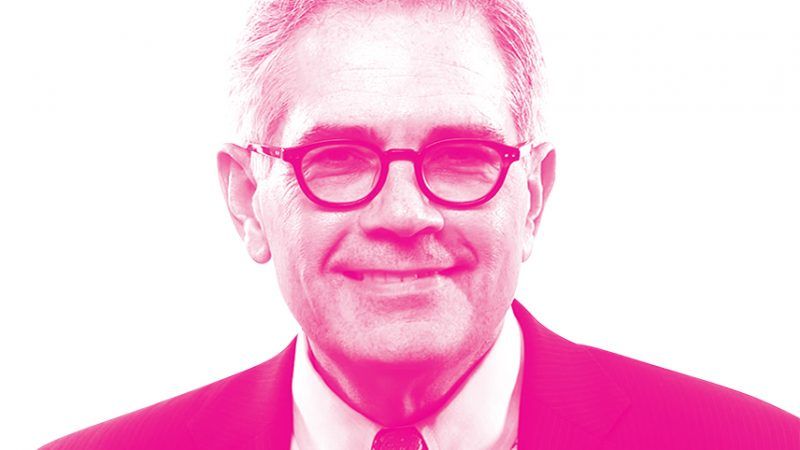A Non-Terrible District Attorney Wins in Philly
But will he be able to follow through?

When Larry Krasner, a longtime Philadelphia civil rights lawyer, announced he was running to be the city's next district attorney (D.A.), the local establishment treated his candidacy more like a punchline than an actual threat.
Could a guy who's sued the Philadelphia Police Department dozens of times and represented Black Lives Matter protesters really be serious? Who in their right mind runs for district attorney on a platform of not pursuing the death penalty and of refusing to put low-level drug offenders in jail? The president of the local Fraternal Order of Police called Krasner's candidacy "hilarious." When he beat six opponents in the Democratic primary, Philadelphia's biggest newspaper endorsed his Republican opponent.
Nobody's laughing anymore. On November 7, Philadelphia voters made Krasner the city's top prosecutor—the latest, most high-profile example of a candidate who won a D.A. election with an explicit reform platform. But can they change the institution, or will the institution end up changing them?
The first crop of reform-minded prosecutors have done admirable work. Kim Foxx, the state attorney for Cook County, Illinois, released the first-ever transparency report for her office. In Texas, Harris County D.A. Kim Ogg fired dozens of prosecutors and essentially decriminalized low-level marijuana offenses.
But in other cases, prosecutors haven't delivered. In an October New York Times op-ed, "The Myth of the Progressive Prosecutor," Josie Duffy Rice noted that Manhattan District Attorney Cy Vance, who is considered a progressive, has continued to zealously prosecute misdemeanor drug crimes. Likewise, Rice observed that former Philadelphia D.A. Seth Williams broke a campaign promise to stop seeking life sentences without parole for juveniles. He later resigned while under a federal corruption investigation, paving the way for Krasner's successful candidacy.
If ambitious district attorney candidates start to notice that reform rhetoric is a winning platform, some will no doubt pay lip service to changing the system with no intention of following through.
On election night, asked if he had a message for the police unions that opposed him, Krasner told Reason's Ed Krayewski: "You're going to be treated fairly, you're going to be treated in an even-handed way, and you're also going to be [held] accountable, and if that's not good enough for you, maybe you should examine your own version of fair."
Voters who put prosecutors in office on the promise of a more just justice system must hold them to the same standard. Fair is fair.
